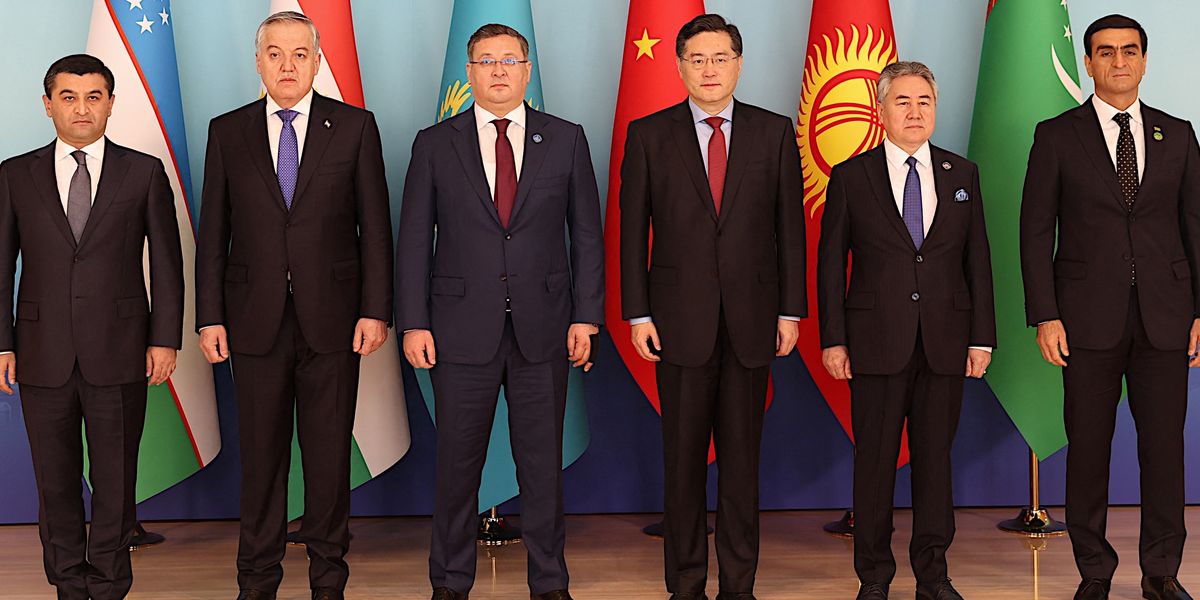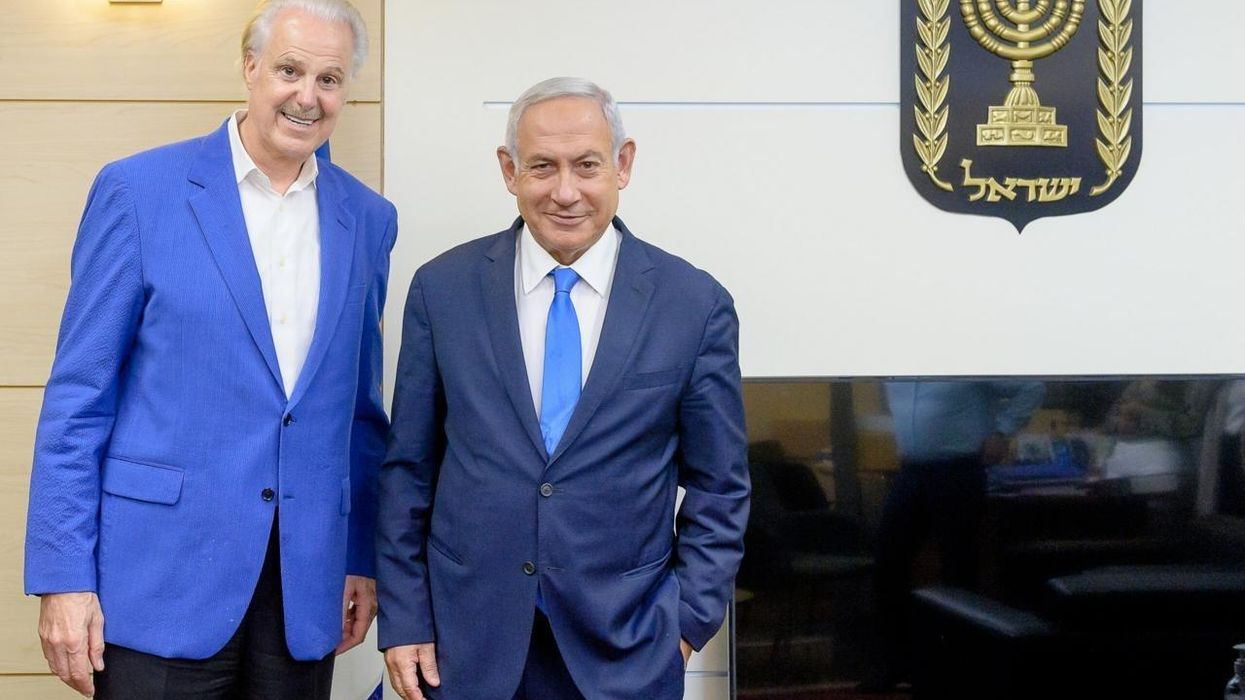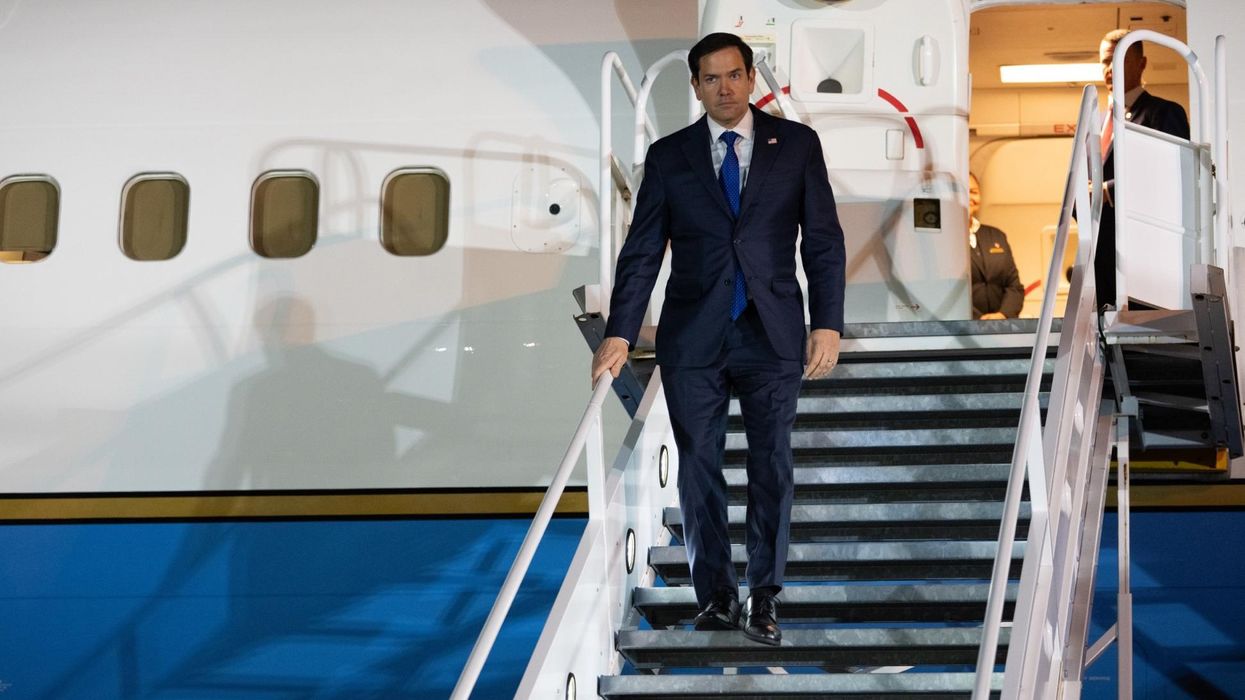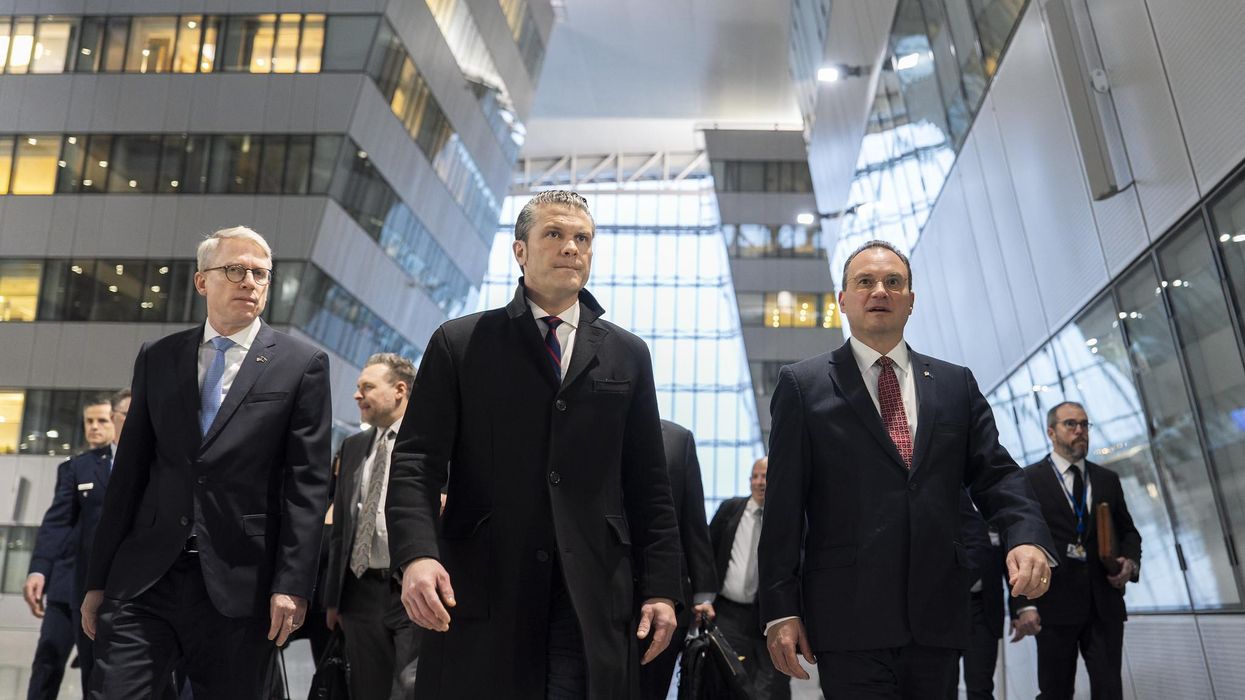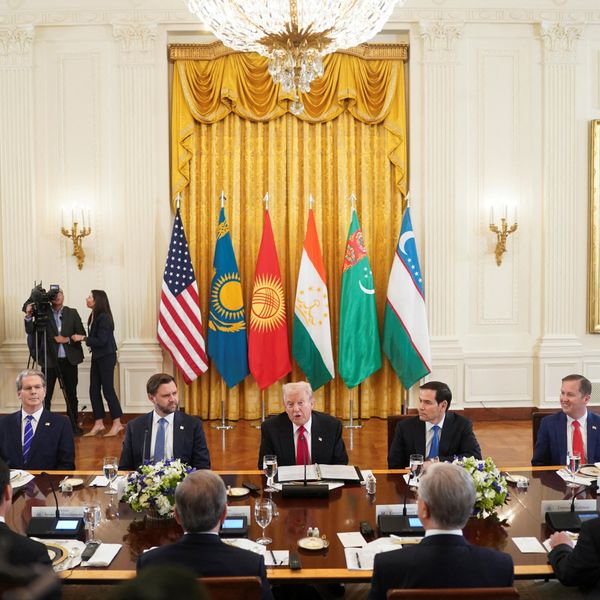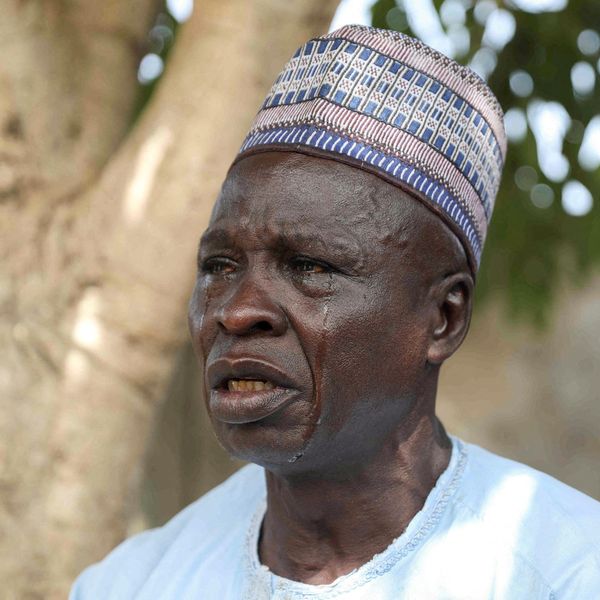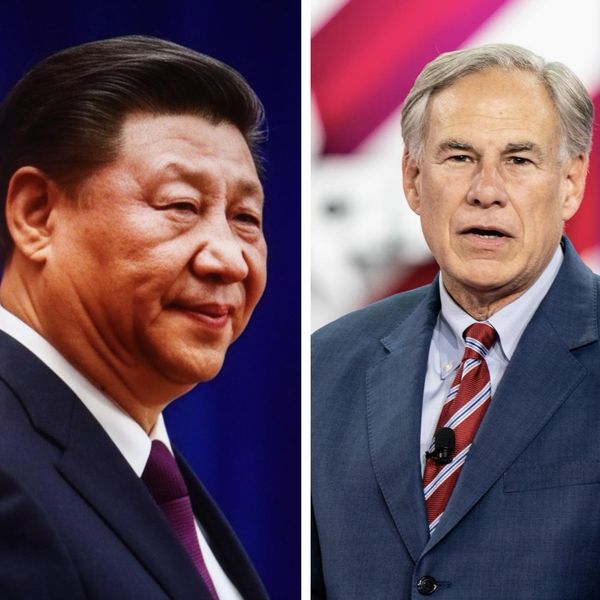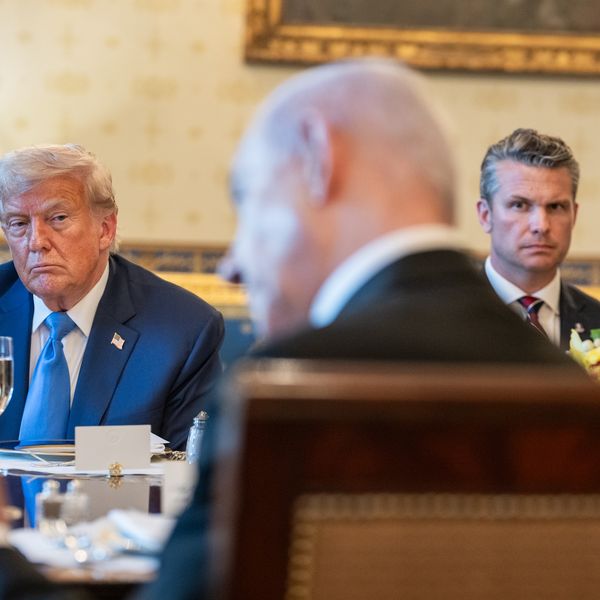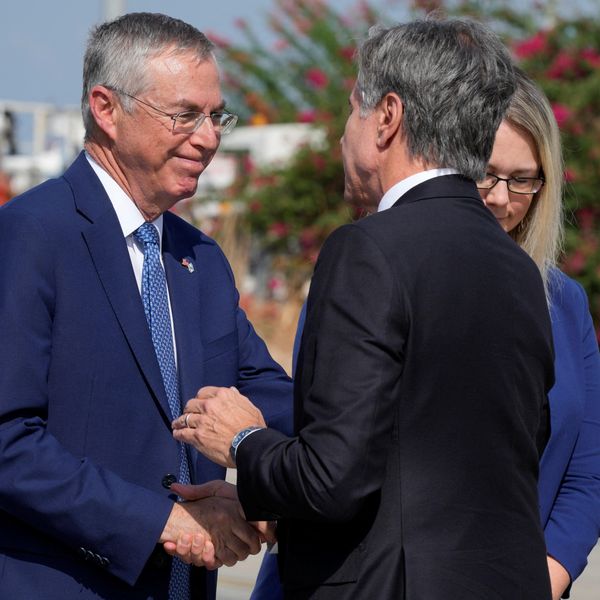President Donald Trump has caused quite a stir in the media in recent months with his bold statements on a diplomatic solution to the military conflict in and around Ukraine. One of his moves in this direction at the beginning of December was a phone call with Kazakhstan’s president Kassym-Jomart Tokayev asking the latter for his opinion on the issue.
The fact that Trump would pick up the phone to talk to Tokayev suggests that Kazakhstan could play a role as an actor in the search for a diplomatic solution in Ukraine. Furthermore, it underscores Central Asia’s potential to shape the peace and security architecture in Eurasia and beyond. In view of the aspirations of the new Trump administration, it is likely that U.S. policy towards Central Asia may be in line for an upgrade.
Central Asia's evolution as a middle power
In the past, Central Asia has tended to be perceived internationally as a troublemaker because of its security problems: the threat of Islamic extremism, domestic instability and recurrent political and social clashes, water and environmental issues as well as border conflicts among Kyrgyzstan, Tajikistan and Uzbekistan since the collapse of the Soviet Union.
Despite various incidents, recent years have shown that Central Asia could well turn into a stabilizing factor, an independent security actor and a middle power in international politics.
First and foremost, regional cooperation has intensified and relations between countries have improved. The border demarcation between Kyrgyzstan and Uzbekistan was officially completed in early 2023, and Tajikistan and Kyrgyzstan reached an agreement on disputed territories at the end of 2024. Kazakhstan and Uzbekistan, which have been competing for political and economic supremacy in the region for decades, signed an alliance agreement in 2022. A tandem of these two economically most dynamic and populous countries is fundamental for regional cooperation and security.
Finally, the first meeting of the secretaries of the security councils of the Central Asian countries took place last year. By peacefully resolving inherited or emerging conflicts and pooling the potential of each country, the region is becoming a stronger and more influential actor on the international stage in the process of reshaping the global peace and security architecture.
The C5+1 (the five Central Asian states plus the U.S.) foreign policy format established at the highest level since January 2022 is another step in that direction. Whether at a meeting with Chinese President Xi Jinping, German Chancellor Olaf Scholz, or Russian President Vladimir Putin, the leaders of the five Central Asian states (including Turkmenistan, which has long taken an isolationist approach) sat around the same table — a development that is extremely promising.
The region’s external assertiveness had already begun with the Western withdrawal from Afghanistan. While the countries of Central Asia were once a bridgehead for Western operations in Afghanistan, they are now largely on their own to deal with the challenges that remain.
C5 meets the new Trump administration
It was during Trump's first presidency that the current United States Strategy for Central Asia 2019-2025 was formulated. It is defined as building a more stable and prosperous Central Asia that is free to pursue political, economic, and security interests with a variety of partners on its own terms and that is connected to global markets. It is noteworthy the U.S. strategy coincides with the region's aspiration for greater strategic autonomy, which is characteristic of emerging middle powers.
In practice, the C5+1 format at the level of foreign ministers, as envisaged in the strategy, was raised to the level of heads of state by Trump's successor, Joe Biden, when he met with the leaders of five Central Asian states in New York in 2023. The newly established B5+1 format — the private sector-led counterpart to the C5+1 — facilitates public-private dialog to promote greater economic partnership between the U.S. and Central Asia.
However, since the U.S., whether governed by Republicans or Democrats, seeks to reduce its dependence on China, it is highly likely that cooperation in the area of strategic resources will be of interest for Trump's interaction with the region. In that context, the dialogue with Central Asia on critical minerals, established in 2023, is of utmost significance. China is the most important source of imports for many of the minerals identified by the U.S. government as strategic, such as lithium, cobalt or nickel. Strategic resources and the long-standing energy cooperation are thus potential key areas of relations between the new Trump administration and Central Asia.
An update of the Central Asia Strategy will be necessary in the light of at least two major developments. First, the growing importance and need for further development of the Trans-Caspian Transport Corridor (TCTR), also known as the Middle Corridor, which runs across the Caspian Sea and the Caucasus, bypassing Russia, and is intended for the transport of industrial goods and fossil energy to Europe. The U.S. and EU recently agreed on a partnership to strengthen the Middle Corridor.
Second, the 2019-2025 strategy was essentially focused on Afghanistan. Since the U.S. withdrawal in 2021, the U.S. has not recognized either the Taliban or any other organization as the government of Afghanistan, making the Central Asian states all the more important as a link in monitoring developments in Afghanistan and coordinating the continued relocation of U.S.-Afghan allies. In both cases, Kazakhstan and Uzbekistan — rising middle powers and strategic partners of the U.S. in the region — are likely to play a role.
Maneuvering as a group
The geography of Central Asia at the intersection of the interests of Russia, China, Turkey, Iran and the West means that a single country, even one as large and economically relatively powerful as Kazakhstan, is unlikely to effectively maintain the maneuverability of a middle power in the long run.
Rather, the five countries in the region are best placed to pursue their interests when acting as a group with a regional agenda. This is what Kazakhstan, Kyrgyzstan, Tajikistan, Turkmenistan and Uzbekistan have been trying to do since 2022 in particular.
Having this in mind, it is logical for the Trump administration to pursue a deal-driven approach that would accommodate foreign policy pragmatism shown by the Central Asian countries. The new U.S. administration would be well advised to take advantage of the increased interaction among Central Asian states, as well as within their widespread network of strategic partnerships and alliances, that includes Russia, China, Turkey and the Arab world, by engaging on energy, connectivity and security to the benefit of all actors involved.
- Everyone is 'multi-vectoring' — the US shouldn't be left behind ›
- Central Asia: The blind spot Trump can't afford to ignore ›
- Kazakhstan's view of Ukraine is complicated because it, too, is complicated ›
- Central Asia doesn't need another great game | Responsible Statecraft ›

